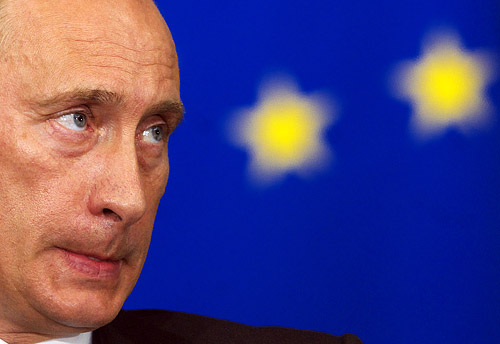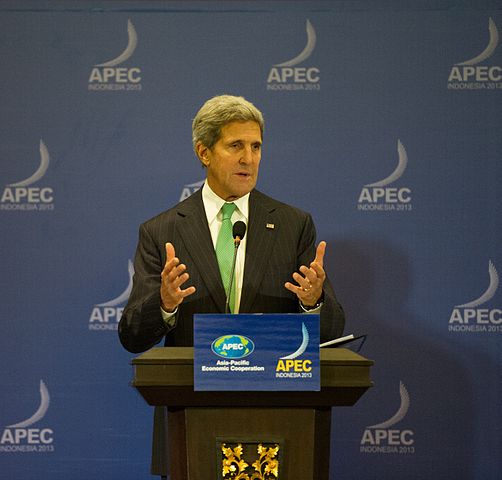
Bosnia is still struggling to create a cohesive state
As Bosnia and Herzegovina continues to come to terms with its violent past, many still wonder if the country will ultimately disintegrate. This was a prognosis recently put to Zeljka Cvijanovic, the current Prime Minister of Republika Srpska, a sub-region. She dismissed the question out of hand. Still, it was clear from her presentation at the Royal United Services Institute in London and in a subsequent interview for BBC HardTalk that her primary allegiance (as a citizen and politician) is to Republika Srpska, rather than to Bosnia and Herzegovina.

The EU, Russia, and the Caucasus
A funny thing happened in Moscow in September. Meeting with Russian President Vladimir Putin in Moscow at the beginning of the month, Armenia’s President Sargsian announced that Armenia had decided to join the Eurasian Customs Union. The Customs Union and the more general Eurasian Union project are an effort to foster re-integration in the former Soviet space. Sargsian’s statement effectively amounted to a retreat from the agreement between Armenia and the EU on Association. After three years of intense and successful negotiation with the EU, Armenia dumped the project.

The US Rebalance Off-Balance: Missing the party in Asia
In April 2013, Joseph Yun, then the US Acting Assistant Secretary for East Asia and the Pacific, addressed a Senate Foreign Affairs Subcommittee on the US policy of “rebalance” towards Asia. He argued that this rebalancing, originally introduced by the Obama administration in 2011 as the “pivot”, reflected the “profound recognition that the future prosperity and security of our nation will be defined by events and developments in the region”. Yun went on to explain how the US commitment towards the Asia-Pacific can best be demonstrated, noting that while security and defence-related cooperation is important, US “allies and partners… also tell us that, as we deepen our military engagement, we should continue also to emphasize the diplomatic, development, economic, and people-to-people engagement in order to demonstrate our longer-term commitment to our rebalance strategy.” (Yun Testimony, Washington DC, 25 April 2013).
President Obama’s intended visit to the region in early October 2013 was supposed to be a key plank in demonstrating that commitment. Obama was to have attended the East Asia Summit in Brunei, and the Asia-Pacific Economic Conference held in host-country Indonesia – a country that because of its influence in ASEAN, the G20 and the Organization of Islamic Conference, deserves sustained attention. In Kuala Lumpur, Obama would have attended the Global Entrepreneurship Summit. More importantly still, it would have been the first time that a sitting US president has visited Malaysia since 1966. Obama was also due to be in the Philippines in order both to demonstrate that the US remains a loyal ally when there is a perceived increased threat from China, but probably also to give the message that Manila needs to stay in step with its ASEAN neighbours on the South China Sea dispute and not surprise them with diplomatic positions that leave them nonplussed and that would likely exacerbate the issue.

Moving away from the end of history to a sustainable history
Two decades ago, the ‘End of History’, à la Francis Fukuyama, seemed a plausible prediction for many in the West. At least, it was a prophecy many hoped would turn into a self-fulfilling prophecy. In the climate of reinvigorated faith in the virtues of liberal democracy post-1989, freedom and democracy were two common buzzwords that indeed seem to carry a strong promise for the future. They also seemed indissolubly linked and interchangeable.
Western-type liberal democracy in its current form remains the most tested and successful accountable governance model in history. However, as a slogan for global political change in the 21st century, it needs to be re-examined both in terms of its applicability to all forms of societies and for making current democratic societies more inclusive. The range of events now in the spotlight of international relations – such as the Arab Spring – has further emphasized that the bid for leadership change, be it highly authoritarian, might in fact be premised on a quest for something more wholesome than just political freedom.

In the wake of the German elections – the all-too-soon forgotten Euro Hawk drone scandal
Was it not Germany’s choice and commitment to be a civilian power? The German federal elections have run their course and the CDU/CSU gained the lion’s share of the public’s support. Apparently the electoral results were unaffected by the major political scandal of the summer – the spectacular failure of the Euro Hawk surveillance drone programme. The program has been in the making for 13 years during three consecutive government mandates – in two of these mandates the CDU/CSU has been the major political power. The ‘rise and fall’ of the surveillance drone has also come at a cost of half a billion euros to the German taxpayers. Should such a scandal be forgotten so quickly?
‘Drones’ evoke recent American military campaigns, rather than the dusty Ministerial offices in the German capital. Thus, in the summer of 2013, the news of the ‘rise and fall’ of a German surveillance drone caught the German and European public by surprise. As the long silence of the German government on the acquisition of this new military capability was suddenly broken, the public learnt with astonishment that for 13 years the programme has been lurching on, even though the surveillance drone’s flying problems have long been ‘ a fact universally acknowledged.’ Years have gone by, but the technological problems have remained unresolved and the aviation authorities would not certify the Unmanned Aerial Vehicle (UAV) due to its lack of an anti-collision system. In 2013, Germany finally bid an official farewell to the Euro Hawk. Amidst the noise of the heated televised debates and the tearful (for some) farewell to this particular weapon, the old message that once Hemingway made about the hopelessness and futility of war was all but muted.

How Europe exited its crises: is there a federal future for Europe?
Over the past four years some of us may have forgotten that the financial crisis did not start in Europe, but in the USA. If it makes sense to ask ourselves where it all started, it is even more relevant for us to understand what happened on this side of the Atlantic. It is in fact in Europe that the crisis (or the crises) has found a fertile ground to develop and unravel the Eurozone. “Spread”, “bailout”, “rating agency” have become terms that Europeans have become acquainted with, while austerity policies have hit them as it has not happen for decades.
In addition, the crisis came at a time of extreme volatility in global, European and national politics and has arguably contributed to accelerate some trends which were already starting to appear at the beginning of the century. The consolidation of Asia as the new engine of economic growth; the rise of new economic powers such as the BRICS; the negotiations of extensive Free Trade Agreements in an attempt to benefit from access to growing markets and to US to maintain an upper hand in setting global standards (among the others the EU and South Korea FTA and the on-going negotiations between EU and Canada, and the EU and the USA). Domestically the EU is also facing new tensions: a sharp rise of euro-scepticism and of nationalist movements has been registered in many European countries, including Italy, France, Germany, Hungary and the UK, with the UK arguing for a referendum on its own EU membership in 2017. Separatist movements are getting stronger in several regions including Scotland, Catalonia and Flanders. Last but not least, socio-economic challenges are increasingly evident, with unprecedented rates of youth unemployment, an ageing population and the European welfare systems increasingly under pressure.
Together these external and domestic challenges, mixed with the aftermath of the Eurozone crisis in all its facets, constitute an explosive mix. As we are approaching a key electoral year, with the elections of the European Parliament as well as with national elections in several countries including Germany, it is about time to draw some lessons from what happened in Europe and to envisage a possible way to move forward.

Exit strategies and state building: an interview with Richard Caplan
Professor Richard Caplan, of the DPIR, Oxford, and editor of the new book Exit Strategies and State Building, talks to Politics in Spires about the book itself, the practice of internationally-led state-building and strategies for exit. In this interview, Professor Caplan talks about the practical and normative changes that have taken place in the international arena which this book has responded to and deals with some of the most pertinent issues faced by the international community when attempting to undertake state-building projects.

Growth, international trade and energy at the Russian G20
The war in Syria dominated media and diplomatic attention at the G20 in early September in St. Petersburg. At the actual summit, however, the agenda covered mainly macroeconomic and financial issues. Inaugurated in 1999 as a meeting of finance ministers from developed countries and emerging economies, the G20 has turned into a top-level summit coordinating the global response to the financial crisis after the collapse of Lehman Brothers in 2008. The G20 summits in Washington (2008), London and Pittsburgh (2009) re-financed the IMF ($500 billion), and established the Financial Stability Board to stabilise the banking system and derivatives markets. More difficult and less successful were the concerted efforts, from 2010 onwards, to couple fiscal austerity with structural adjustments between trade surplus countries (exporters such as China and Germany) and trade deficit countries (importers such as the US and Italy).









